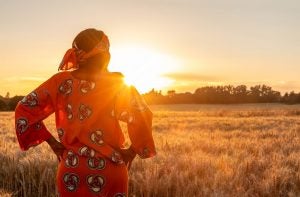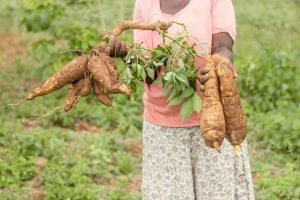The naysayers of agricultural biotechnology have made many arguments against GMO adoption in industrialized nations. A lot of this opposition has also targeted farming in developing regions, more specifically in Africa.
One of the most popular counter-arguments was that GMOs would price farmers in Africa out of the market — admittedly an ingenious way of slowing down innovation without inviting the accusations that they were stunting the growth of the very people they expressed concern about. Another more controversial argument was that farmers in these nations have less ability to mechanize production. Yet again, these opponents of innovation were wrong to undermine this category of farmers.
While farmers from low-income nations can often not afford new innovations such as modern tractors that improve farm productivity, they most certainly can afford improved seeds. To them, the importance is the trait of the new crop and not the method by which it would be produced. Likewise, the planting of seeds itself, albeit improved ones, presents no major feat even to the novice small-scale farmer.
For this reason, farmers in developing nations currently plant more biotech-improved seeds than industrial nations. Furthermore, despite the ongoing effort to discourage them, farmers in Africa are now frontrunners in the global GMO race. Here’s how:
1. They are a leading source of dynamism in improved agriculture
Having identified the need for capital and new technology in farming, both large-scale and small-scale farmers in Kenya have taken it upon themselves to bridge that gap. Groups of farmers currently organize themselves into regional groups, each of which then makes a win-win arrangement with land investors globally.
Typically, these agreements have two main conditions: The investors lease the land from the farmers for a specific period of time, as well as reap the entire profits from the harvest; in return, the farmers, who offer managerial services to investors at no additional cost, are taught how best to use new technology to produce new crops.

The international media has, of course, been quick to spotlight this arrangement as a megatrend of land-grabbing by foreign investors. But, Kimani Wanjoki and other local farmers the city of Nakuru, believe it to be a “… tool for changing the international perceptions on how agricultural development should unfold in Africa.”
Their strides are evidence that farmers in the region are already embracing new farming methodologies and systems. These results offer the country an opportunity to advance in other diverse areas of agriculture much sooner than their counterparts in developed nations.
2. They are a leading voice of GM activism
The area’s first-ever farmer’s march in Africa took place in Johannesburg, South Africa, in 2002. Ever since, farmers all over the continent have come out in significant numbers to speak in support of their stance in the GM debate.
To gain more insight into the farmers’ stance on GM techniques, I reached out to Padma Priya, a researcher on indigenous crops in Pretoria, South Africa. She shared that a majority of the farmers in the country feel that the slow adoption of agricultural advancement has left them vulnerable. They believe that adopting GM techniques “… holds the key to improving the nation’s agricultural health.”
Similar stances against opposition GM arguments have also led to the review of Biosafety Acts in Kenya, the Kingdom of Eswatini, Uganda, and Nigeria.
The difference between these farmers and the rest of the world entangled in the GM debate is that, other than choosing to believe what the media portrays, they are willing to call these claims to question. In reality, those willing to push against the grain can more easily develop a better understanding, and therefore a better ability to learn and advance faster.
3. First to try new GM crops
In yet another big win for GM farming in Africa, farmers in Kenya are now the first globally to produce the genetically modified cassava. According to the Kenya Agricultural and Livestock Research Organization (KALRO), the improved crop is both resistant to cassava brown streak disease, and has already had increased yields.

Farmers in South Africa were also not only the first to produce insect-resistant maize and cotton in 1997 and 1998, but they were also the first globally to commercialize their production. The country’s consistent improved yields have led to a high repurchase rates of these biotech-improved seeds among other farmers in the continent.
♦ ♦ ♦
Ultimately, farmers in Africa are front-runners in the GMO race because they have made it about more than yields. The dedication to which they apply their desire for increased farm productivity spreads beyond the farm and is able to touch other farmers in the continent.
In my opinion, people who are critical on the current approaches to agriculture, or how they can be adopted, will always miss the point. They will not only remain open to being wrong about the science, but also eventually put themselves at risk of being perpetually dismissed because of it. If farmers in Africa have one thing to say about GMOs, it is that it can be safely used to solve social problems, and thereafter inspire collective success.
Michelle Miller, the Farm Babe, is a farmer, public speaker and writer who has worked for years with row crops, beef cattle, and sheep. She believes education is key in bridging the gap between farmers and consumers.



